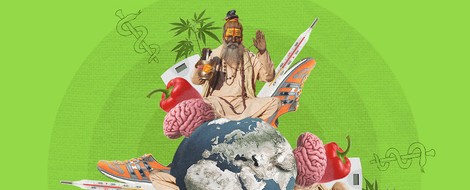Your podcast discovery platform
Curious minds select the most fascinating podcasts from around the world. Discover hand-piqd audio recommendations on your favorite topics.

piqer for: Health and Sanity Boom and bust Climate and Environment
Melissa Hutsell is an award-winning freelance journalist with a deep rooted passion for both community and international journalism. She was born and raised in Northern California, and has lived, studied, worked, and traveled in more 20 different countries. Melissa holds a Master's degree in Global Journalism from City University London, as well as degrees in Journalism and Globalization from Humboldt State University. Though she covers various topics as both a writer and editor, she specializes in business and cannabis journalism.
The Power Of Pessimism
Science has proven that positivity is powerful… but being a pessimist has its benefits, too. As it turns out, seeing the glass half empty may encourage people to want to fill it up.
“Pessimism isn’t just about negative thinking,” reports author Fuschia Sirois, “Personality science has revealed it also includes a focus on outcomes—what you expect will happen in the future.” While optimists focus on positive consequences, pessimists focus on the negative.
“Definitive Pessimists” take this to a whole new level; these individual harness their negativity to reach goals. They use a sort of strategy to manage anxiety – or, in other words – “harness their negative mood to motivate themselves to perform better.”
Defensive pessimists set and prepare for low expectations – like not getting hired after a job interview. They’re able to think of all the things that can go wrong and prepare for them. “This gives the defensive pessimist a plan of action to ensure that any imagined mishaps won’t actually happen, such as practicing for the interview and getting there early,” explains Sirois.
The desire to prevent negative outcomes can also have health benefits. For example, those who worry about catching an illness during outbreaks will wash their hands more frequently. When it comes to more serious illnesses, a defensive pessimist – one who is more likely to see their health as declining – may manage symptoms, like pain, more realistically.
Ultimately, the difference between these types of pessimists and others is their ability to cope – which proves that it’s not about pessimism; it’s about what you do with it.
